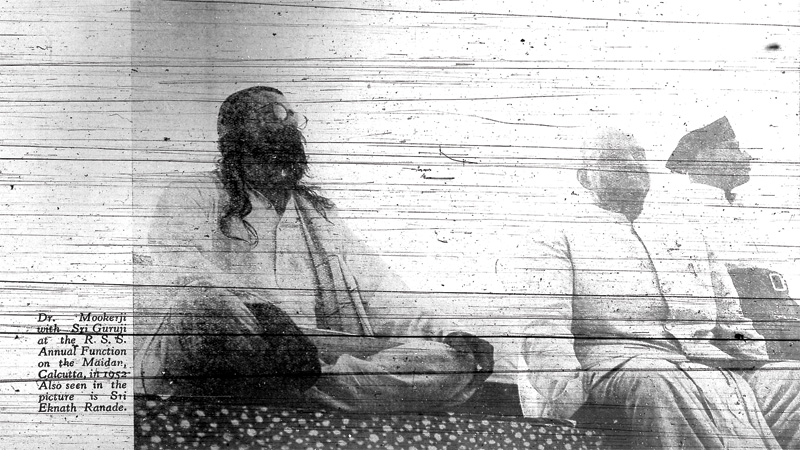A Tribute to Dr. SHYAMA PRASAD MOOKERJee
(6 July 1901 – 23 June 1953)
— Shri Guruji
IT IS ABOUT 16 years that I had the privilege of meeting Dr. Shyamaprasad Mookerji at Nagpur. The training classes of the Rashtriya Swayamsevak Sangh were going on and I had been put in charge of the same by Param Poojneeya Dr. Hedgewar who, on his return from Poona, took ill and was confined to bed in his residence. Dr. Mookerji was returning from Bombay, where he had gone to attend some meeting of the Hindu – Mahasabha,’– and had broken journey at Nagpur especially to meet Param Poojneeya Dr. – Hedgewar. But due to the latter’s illness, there could be only a brief meeting, more in the nature of a social visit, enquiring after his health, and nothing of importance could be discussed. The main point for discussion was whether, and how far, the Sangh would párticipate in the political activities of the Hindu Mahasabha. But except for a short-question, and a shorter answer explaining why it was imperative that the Rashtriya Swayamsevak Sangh be wholly out of the political embroils, nothing more could be spoken.
MY FIRST IMPRESSION
What, however, impressed me was the open-mindedness: and readiness to understand with sympathy a view differing from his own, evinced by Dr. Mookerji. He seemed to be open to – conviction and ready to acknowledge the force of an argument though it militated against his own cherished views. By this quality of those who have intrinsic greatness in-born in them, Dr. Mookerji captivated my mind even at this first meeting, and ever since I have been cherishing the highest regard for him. This regard, became deeper, for throughout his stay I had occasion to discuss, at times with some vehemence, so many questions and aspects for keeping the R.S.S. an independent body without any political activity controlling it from outside for its own purposes, and I found –that he maintained an even balance of mind, never allowed himself to be perturbed, and exhibited a rare readiness to enter into the spirit of all I was trying to explain.
After this occasion (May, 1940) I had many opportunities of meeting him and exchanging views on the various burning topics touching the life of our people. Though latterly he had resigned from the Hindu Mahasabha because he honestly felt that political parties could not afford to ignore and cutcast the non-Hindu communities residing in the country, I found he entertained very high regard for that sublime soul and inspiration of that body, the indomitable hero-patriot.
SwatantryaVeer Barr. V D. Savarkar. I had on many occasions heard him refer to Swatantrya Veer with such genuine emotion as to feel moved. When Shri Savarkar was standing his trial on the charge of being one of the conspirators innolved in the assassination of Mahatma Gandhi, Dr. Mookerji used to speak with great feeling about grave injustice of putting a patriot of the truest ring in this disgraceful position. He was certain that it was sheer vindictiveness on the part of those in power calculated to crush the popularity of those who did not toe their line and being subservient to them.
RESIGNATION-WHAT NEXT ?
Then came the last phase of Dr. Mookerji’s life. Unable to keep himself in the smug chair of a Minister when countless millions of our countrymen were being uprooted and subjected to indescribably inhuman treatment by East Bengal, Pakistan, and driven out to find what refuge they could in our part of the country, he resigned the post and proved-what had been proved as his ‘strong character time and again that service of the people was his sole principle.
(This article written by Sri Guruji was published in the Organiser on third death anniversary of Dr. Shyama Prasad Mookerjee)


